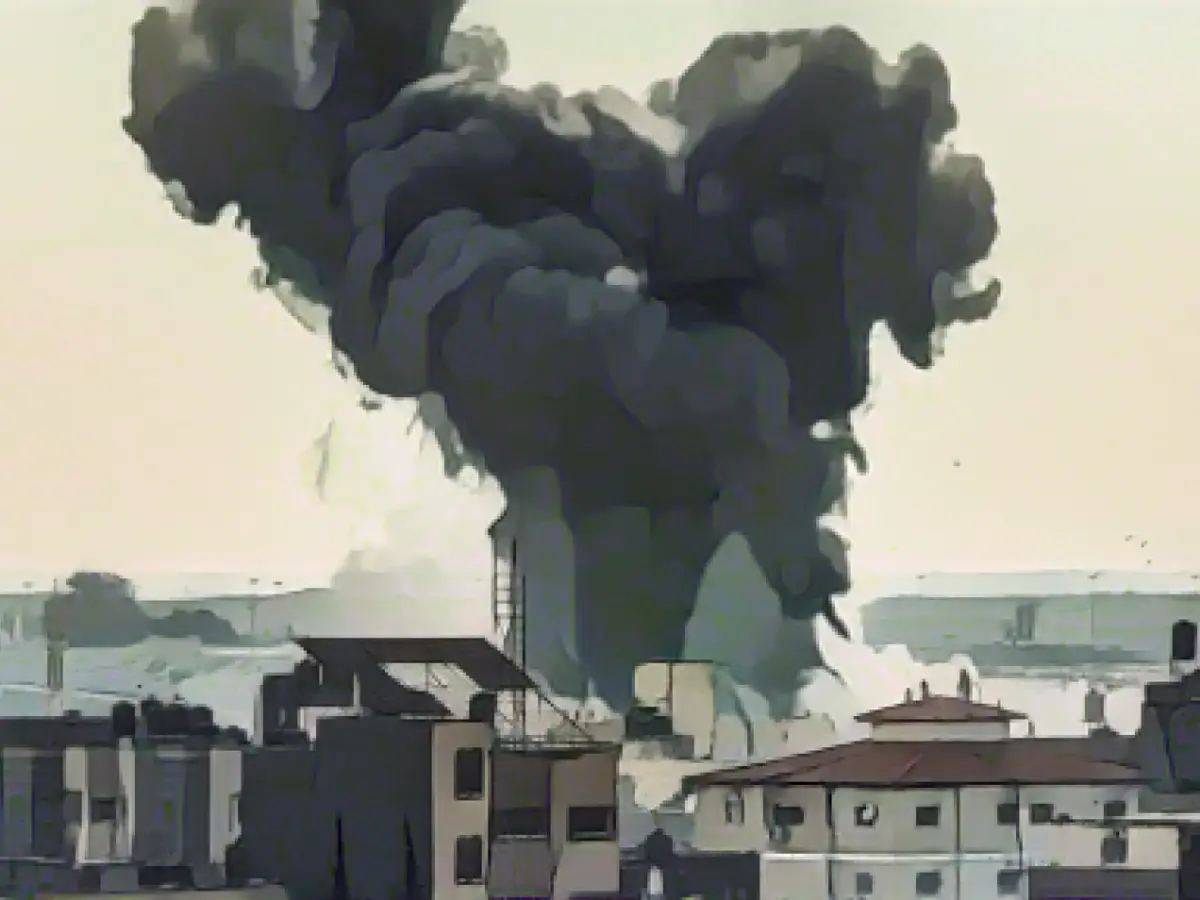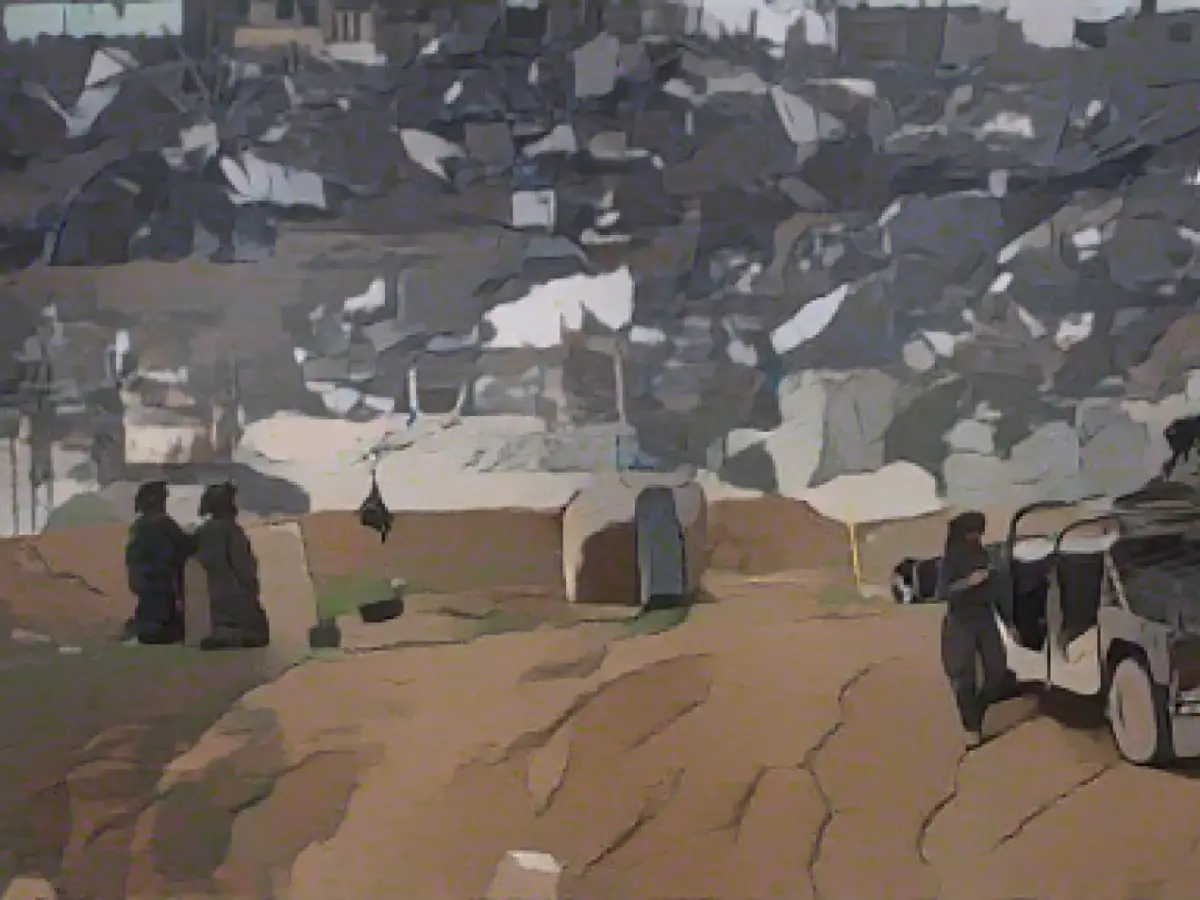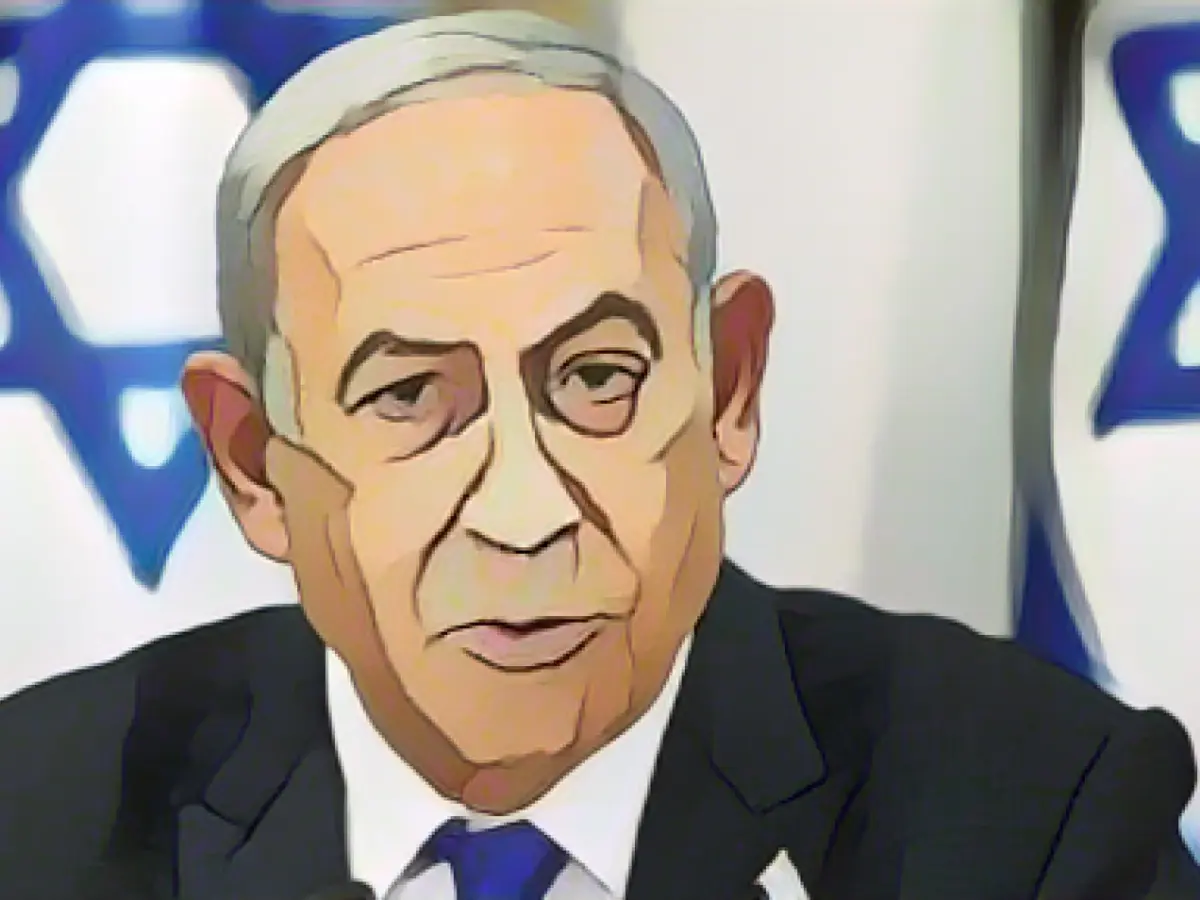Title: Gaza Conflict: An Unyielding Standoff Between Israel and Hamas
The ten-week long conflict in the Gaza Strip, rife with violence and devastation, has left a paramount impact on the region's population. The health authority, closely linked to Hamas, reports a staggering death toll of around 19,000 people. Entire neighborhoods lie in ruins, reeling under the immense destruction.
Following the horrific massacre that transpired at Israel's border towns, leaving trails of terror in its wake, Israel launched attacks on positions within the Gaza Strip. The intention is to debilitate Hamas, the Islamist organization, that played a significant role in the massacre, and ensure it poses no further threat to Israel.
But what does Israel itself say?
Israel's Prime Minister, Benjamin Netanyahu, asserts that the country aims to eradicate Hamas as a menace to Israel's future safety. Influenced by the transformation of Germany following the fall of the Nazi regime, Israel aspires to undergo similar changes in the Gaza Strip post-Hamas's destruction.
However, the perceived possible eradication of Hamas was met with differing views from various perspectives.
Palestinians' Perspective
Jamal Zakkut, a political activist and columnist from the West Bank, heavily doubts the feasibility of eliminating Hamas due to its widespread support among Palestinians. Their popularity is soaring in response to Israel's actions and incidents in the occupied West Bank.
Recent polls reflect a significant rise in Hamas' reputation following the massacre in Israel and the subsequent Gaza conflict. The survey reveals that more than 40% of respondents in the West Bank and Gaza Strip support Hamas. Those expecting Hamas to reign supreme in the Gaza Strip in the future make up almost two-thirds of the respondents.
Hamas' Perspective
The head of Hamas, holding firm to the group's ideals, declares its impending survival despite the ongoing conflict. Plans that exclude Hamas's role in crafting the Gaza Strip's future are seen as mere illusions, according to the Islamists, who continue to harbor the intent to obliterate Israel.
Qatar, playing a mediating role in the conflict and a supporter of Islamist groups like Hamas, echoes a similar sentiment. Hamas maintains a significant presence in both the Gaza Strip and the West Bank, making the perceived eradication of the organization next to impossible, according to Qatari officials.
Expert Opinions
Military expert Harel Chorev from Tel Aviv University asserts that any organization, including Hamas, can be eradicated. His confidence is bolstered by the thinned-out Hamas force that consists of only 15% of its original members, stationed in the northern Gaza Strip.
On the contrary, other experts advocate for a more nuanced approach. They suggest that wiping out Hamas' ideology at its core is the only way to truly eradicate the organization. This approach would require Israel to accept a two-state solution, as suggested by retired US Lieutenant General Ben Hodges.
Strengthening Hamas' rivals, such as the Palestinian Authority, can also help weaken its influence in the region, according to Jack Watling from the British Royal United Services Institute. However, experts are cautious of the ideology's resilience and the organization's ability to endure in the face of adversity.
Germany's Position
German Chancellor Olaf Scholz, recognizing the massacre, supports Israel's right to defend itself against Hamas and prevent further acts of terror. Despite this, Hamas representatives repeatedly assert their intentions to carry out further massacres, which Germany condemns.
Conclusion
The conflict in the Gaza Strip continues to unfold, shaped by the complex dynamics of power, politics, and ideology. The attempt to eliminate Hamas has resulted in significant loss of life and destruction, yet the organization's roots remain deeply entrenched in the region. The confluence of military, political, and humanitarian factors necessitates a comprehensive and nuanced understanding of the situation, inviting constructive dialogue that can contribute to lasting peace and resolution.








